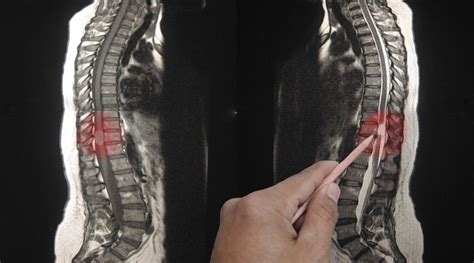Understanding The Compensation Types Available In A Spinal Cord Injury Lawsuit

A spinal cord injury can have a devastating impact on a person’s life. It can result in permanent disability, loss of sensation, and reduced mobility. In such cases, seeking compensation through a lawsuit can help the injured person cover medical expenses, rehabilitation costs, and other financial burdens. Understanding the compensation types available in a spinal cord injury lawsuit is crucial for both the injured individual and their legal representation.
1. Economic Damages
Economic damages refer to the financial losses incurred as a direct result of the spinal cord injury. This includes medical expenses, rehabilitation costs, ongoing therapy, assistive devices, home modifications, and lost wages. These damages are quantifiable and can be calculated based on actual expenses and future projected costs.
2. Non-Economic Damages
Non-economic damages are more subjective and relate to the pain, suffering, and emotional distress experienced by the injured individual. These damages take into account the loss of enjoyment of life, mental anguish, depression, anxiety, and the impact on personal relationships. Unlike economic damages, non-economic damages are not easily quantifiable, and their calculation can vary based on the severity of the injury and its long-term effects.
3. Punitive Damages
Punitive damages may be awarded in cases where the defendant’s actions were deemed intentional, malicious, or grossly negligent. These damages are meant to punish the wrongdoer and deter others from engaging in similar behavior. Punitive damages can significantly increase the total compensation awarded in a spinal cord injury lawsuit.
4. Loss of Consortium
Loss of consortium refers to the deprivation of the injured person’s ability to enjoy the companionship, love, and support of their spouse. This type of compensation acknowledges the impact of the injury on the injured person’s marital relationship and the emotional and financial support provided by their spouse.
5. Future Medical Expenses
Spinal cord injuries often require extensive long-term medical care. Future medical expenses cover the costs of ongoing treatments, surgeries, medications, and therapies that the injured individual may require throughout their life. These expenses are estimated based on medical expert opinions and can be a significant component of the compensation awarded.
6. Assistive Devices and Home Modifications
Spinal cord injury victims often need assistive devices such as wheelchairs, prosthetics, and adaptive equipment to maintain independence and improve their quality of life. Additionally, home modifications may be necessary to accommodate the injured person’s mobility needs. Compensation can be sought for the purchase and installation of these devices and modifications.
7. Legal Fees
In most spinal cord injury lawsuits, legal representation is crucial to navigate the complex legal process and maximize the compensation awarded. The fees associated with hiring a lawyer and other legal expenses can be covered as part of the compensation package.
Frequently Asked Questions
Q: How long does it take to receive compensation in a spinal cord injury lawsuit?
A: The timeline for receiving compensation varies depending on the circumstances of the case. It can take several months to years for a lawsuit to reach a settlement or go to trial.
Q: What factors are considered when determining the amount of compensation in a spinal cord injury lawsuit?
A: Factors such as the severity of the injury, the impact on the individual’s daily life, the need for ongoing medical care, and the level of negligence or intentional harm by the defendant are considered when determining the amount of compensation.
Q: Can compensation be awarded for emotional distress caused by a spinal cord injury?
A: Yes, compensation can be awarded for emotional distress caused by a spinal cord injury. Non-economic damages specifically cover the pain, suffering, and emotional impact experienced by the injured individual.
Q: Is it necessary to hire a lawyer for a spinal cord injury lawsuit?
A: While it is not required to hire a lawyer, having legal representation can greatly increase the chances of receiving fair compensation. A lawyer can navigate the legal complexities, gather evidence, and negotiate with insurance companies on behalf of the injured individual.
Q: Can compensation cover future medical expenses and ongoing care?
A: Yes, compensation can include future medical expenses and ongoing care. Medical experts may provide opinions and estimates on the necessary treatments and therapies the injured individual will require in the future.